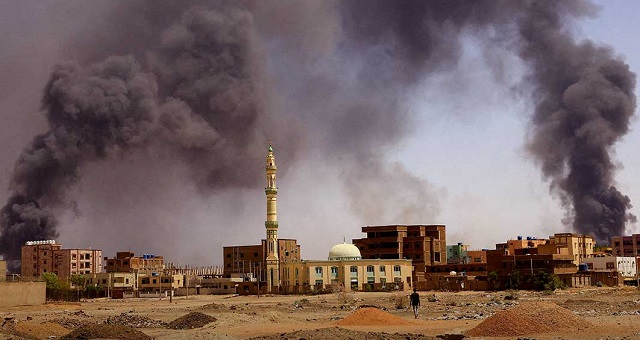
KHARTOUM, SUDAN | Xinhua | As the Sudanese people expected to see an end to the years-long instability in 2023 to avoid an economic collapse in the country, Sudan slid into a deadly military conflict in April that has been ongoing till now.
HEAVY TOLL ON CIVILIANS
On April 15, residents of the capital Khartoum woke up to the sounds of heavy gunfire and explosions between the Sudanese Armed Forces (SAF) and the paramilitary group Rapid Support Forces (RSF).
With the conflict entering its ninth month, all doors seem to be closed to any peaceful endeavor as the two warring parties stick to their divergent positions. The descent into chaos has dashed hopes that Sudan will be able to usher in civilian constitutional rule anytime soon.
“The year 2023 is a nightmare for the Sudanese.” Abboud Jabir, a Sudanese politician and former member of the Sudanese Parliament, told Xinhua that “the political division and conflicting positions caused the bloodiest war in our country to break out.”
The consequences have been catastrophic and Sudan is now witnessing the largest wave of internal displacement in the world, according to the UN.
More than 7.1 million people have been displaced inside and outside the African country, while about 1.4 million Sudanese are living as refugees in neighboring countries, including Egypt, Chad, Ethiopia, Eritrea and South Sudan, said the UN High Commissioner for Refugees in late December.
The civilian death toll from the fighting had surpassed 12,190 with many more injured, according to the latest Armed Conflict Location and Event Data Project.
Meanwhile, nearly 18 million people across Sudan are facing acute hunger, according to the latest report of the World Food Program, while the World Health Organization has warned of increasing rates of outbreaks of epidemic diseases such as cholera, dengue fever and malaria.
DETERIORATING ECONOMY
The conflict has brought Sudan’s stagnant economy to its knees with its public revenue drastically decreasing and the national currency depreciating about 80 percent of its market value.
“The fact that over 2.7 million citizens lost their jobs in the private sector and the impact of what we call severe involuntary unemployment has led to a decline in the gross domestic product (GDP) by about 20 percent,” said Abdul-Khaliq Mahjoub, a Sudanese economic analyst.
“There was also a decline in the general budget’s tax revenues due to the government’s inability to collect them. This, in turn, led to a large deficit in the national income by about 25 percent,” he said.
The collapse of the national currency’s exchange rate was a major reason for the worsening inflation figures, the expert noted, which also limited the purchasing power of citizens and weakened the production capacity of the institutions that are still operating without any government support.
According to a recent report by Sudan’s Central Bureau of Statistics, the inflation rate has exceeded 300 percent, resulting in the soaring prices of basic materials, such as bread, sugar, oil, and flour, as well as the rise in transport and communication costs.
The production of gold, the country’s highest non-petroleum export which represents 46.3 percent of total exports in 2022, dropped from 18 tons to only two tons in the period from April to December, according to the Central Bank of Sudan.
What’s more, the current winter agricultural season has failed due to the lack of irrigation, absence of fertilizers and pesticides, and inability of banks to provide the required financing, said Mahjoub.
The International Monetary Fund estimates that Sudan’s debt is expected to increase from 127 percent of GDP in 2022 to 151 percent by the end of 2023.
UNCERTAIN FUTURE
A meeting scheduled for December 28 between leaders of the SAF and the RSF in Djibouti, which was sponsored by the Intergovernmental Authority on Development (IGAD), an East African bloc, was postponed to January 2024 due to “technical reasons,” said Sudan’s Foreign Ministry.
Abdul-Rahim Al-Sunni, a Sudanese political analyst, said “there are serious concerns that continuation of the conflict and the RSF’s control of most areas of western Sudan will ultimately lead to the division of the country,” expressing his hope that a peace agreement could be reached at an early date, otherwise “the unity of Sudan will be threatened.”
The IGAD is leading intensive efforts to revitalize the faltering talks between the leaders of the warring parties, while Saudi Arabia and the United States are trying to inject new blood into their joint initiative that was launched in May without reaching positive results. ■
 The Independent Uganda: You get the Truth we Pay the Price
The Independent Uganda: You get the Truth we Pay the Price





